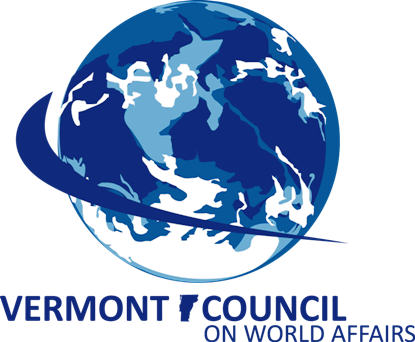The Consequences of War: CSIS Experts Anticipate Dire Social Consequences Amid the War in Ukraine
The VCWA was pleased to welcome a dialogue between Vermont resident and former US foreign service officer, Bill Harwood, and CSIS experts Jacob Kurtzer, Director and Senior Fellow at the Center for Strategic and International Studies (CSIS) Humanitarian Agenda, and Caitlin Welsh, the Director of the Global Food Security Program at CSIS. Harwood moderated the conversation with Kurtzer and Welsh, navigating the panelists through the widespread effects of the war in Ukraine and what/how these impacts might be felt across the world.
The panelists focused on two central catalysts for potential crises far beyond Ukraine: refugee flows and food insecurity. While the fighting may be limited, at this point, to Russia and Ukraine, much of Russia’s targeted attacks on civilian populations, crucial infrastructure, ports, and other logistical necessities are creating the massive refugee flows. These are overwhelming the West’s capacity to provide aid, transport, and shelter, and likely going to create a wave of food insecurity across the Middle East, North Africa, Eastern Europe, South Asia, and Central Asia, according to the analysts. This event offers many cautionary insights, raising concerns about the ramifications far beyond Ukraine’s borders.
Kurtzer provided audience members with an understanding of the tremendous human cost of the war. Citing the current estimates of 4 million external refugees, most of whom have taken refuge in Romania and Poland, as well as other neighboring countries, and enumerable millions of internally-displaced people, he shed some light on how this mass migration will require the allocation of American capital and resources in the near future. “We are going to have to be willing to dedicate a great amount of human capital, financial capital to the humanitarian organizations and to the neighboring that respond, political capital to allow refugees into the United States and to alleviate the burden on Romania and Poland and Moldova,” Kurtzer explained, adding that Americans must also “support our political leadership in responding to this crisis.” Kurtzer explained how this crisis in particular would have much more dire consequences than many others in recent years, adding “this is a crisis and a situation that is going to have impacts, not just for years, but for generations.”
Welsh explained the most important effects of the conflict that she believes will likely permeate virtually all global markets: food insecurity. Welsh highlighted Ukraine’s role in global food production, something often taken-for-granted despite being so impactful for everyday Americans. Fertilizers, grain, and more are likely to see tremendous price-increases and/or shortages as a result of this war, and consumers should expect to see this change even in the United States, which is less tied to Ukrainian production than European and Eurasian markets. She remarked that “in 5 short weeks, Russia has provided a tragic illustration of the impacts of war on food security at multiple levels: at the individual level, national level, and at the global level. I have often heard that war is development in reverse, but in this instance, it is very apt to say that war is also food security in reverse.” Welsh mentioned other recent historical examples of political upheavals correlated with inadequacies in the food supply, and she predicts this crisis will have a much larger impact, as Ukraine is a top food and fertilizer producer for much of the nearby region. Furthermore, she points out that sanctions on Russia and Belarus will exacerbate this food crisis, as they too contribute substantial quantities of food and fertilizer for Eurasia, and many parties with seemingly limited involvement or interests in the conflict are largely dependent on these resources.
In honor of the organization’s 70th anniversary, the VCWA launched its ‘Timely Topics’ Series to provide Vermont with geopolitical and international relations insights. This Timely Topics was the second event in the series, having taken place on Thursday, March 31, 2022, at 12:00 PM (ET). All VCWA members, and those who purchased a ticket for this event, can access a recording of this Timely Topics event by emailing marya@vcwa.org. Information about future events at VCWA can be found here, including the upcoming all-day 2022 International Speaker Series event on May 5, Developing a More Inclusive Approach to Climate Change Policy.

